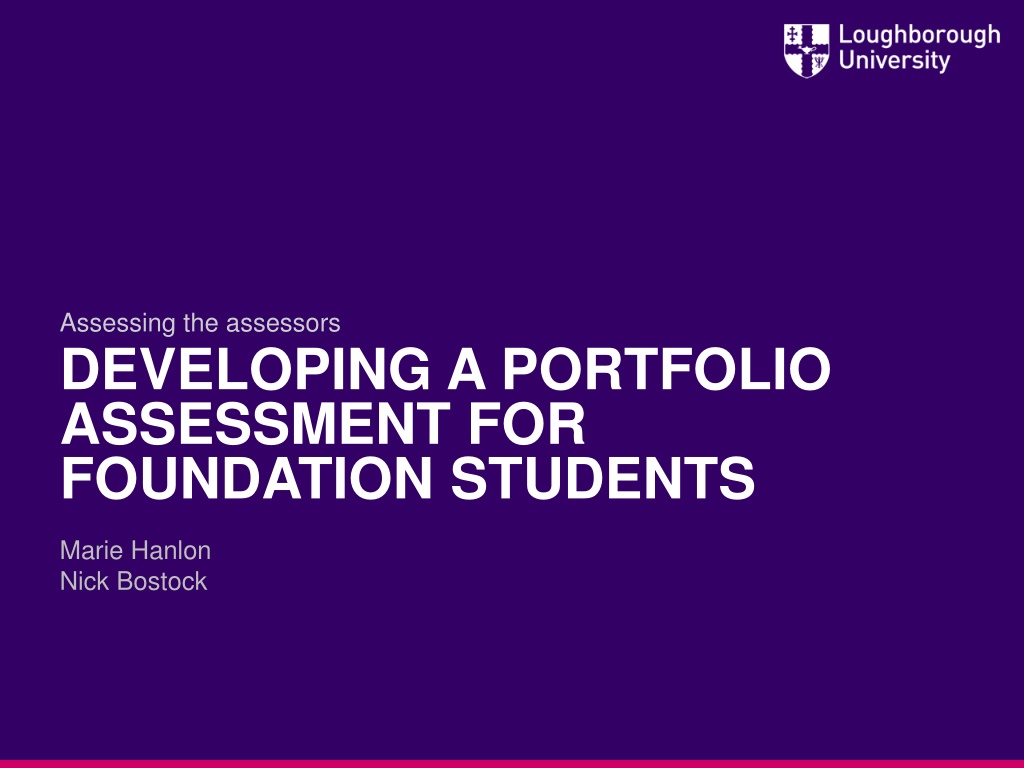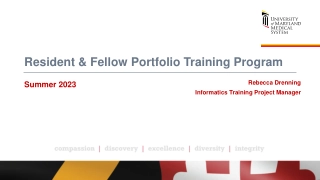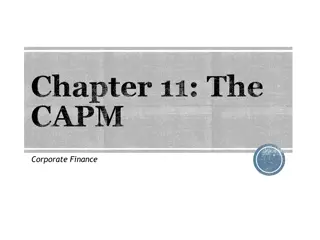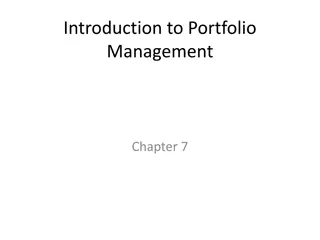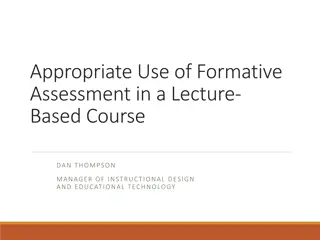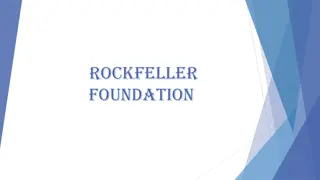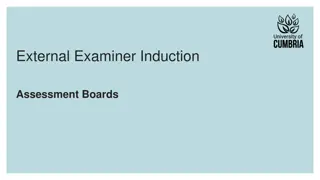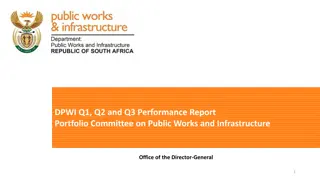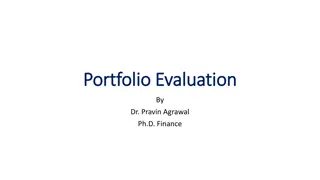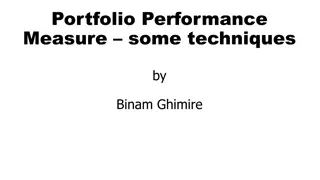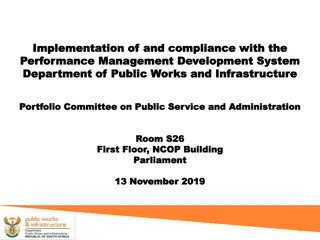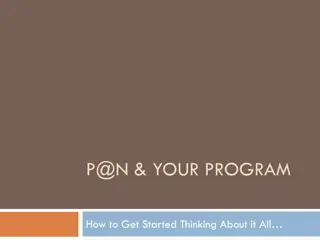Enhancing Student Performance Through Portfolio Assessment in Foundation Programs
Developing a portfolio assessment methodology for foundation students aimed at improving their writing, critical thinking, and reflective skills. The portfolio includes a reflective journal, annotated bibliography, and essay plan to scaffold sub-skills for major assessments. Results show significant improvements in students' performance after initial feedback and guidance. Student engagement with independent study resources and UG program connections are emphasized.
Download Presentation

Please find below an Image/Link to download the presentation.
The content on the website is provided AS IS for your information and personal use only. It may not be sold, licensed, or shared on other websites without obtaining consent from the author. Download presentation by click this link. If you encounter any issues during the download, it is possible that the publisher has removed the file from their server.
E N D
Presentation Transcript
Assessing the assessors DEVELOPING A PORTFOLIO ASSESSMENT FOR FOUNDATION STUDENTS Marie Hanlon Nick Bostock
Background Foundation programme Range of disciplines One written assignment for the semester Regular homework often not completed
Motivation for changes Students needed to write more Students needed to reflect links to UG Programmes Students needed to engage with independent study resources Wanted to scaffold sub-skills for major assessment
The portfolio Reflective journal Annotated bibliography Final major written assessment (essay using sources) Essay Plan
The reflective journal Reflective journal entry every two weeks Related to independent study activities Regular feedback mark scheme focussed on content but space for language feedback too. link to UG programmes (response to feedback) Develop critical thinking link to UG programmes Develop reflective writing skills link to UG programmes
Annotated Bibliography Select sources to prepare for speaking assessment (interview) Link to UG study (seminars) Complete Harvard references Justify choice of sources Enabled feedback on referencing and choice of sources
Essay Plan Work to a set formula: paragraph plan - topic sentence; supporting sentences; concluding sentence including sources for each piece of evidence Pick up on referencing issues before final essay Preparation for writing coursework (essay using sources)
Results Reflective journal Journal 1 Journal 2 Journal 3 Journal 4 Average Scores 48% 68% 68% 69% Most students improved significantly after initial feedback and a tutor model Majority reached a plateau at the second journal entry A couple showed virtually no improvement despite repeated written and face-to-face feedback
Student Feedback Reflective writing DID WRITING THE FOUR REFLECTIONS HELP YOU TO IMPROVE YOUR WRITING SKILLS? DID THE FEEDBACK HELP YOU TO IMPROVE YOUR REFLECTIVE WRITING SKILLS? Y/N 9% Y/N 9% N 9% N 18% Y Y 73% 82%
Student Feedback Reflective writing Which statements describe your feelings as a result of completing the reflective writing tasks? I now feel better able to plan my independent study. 36% I enjoyed thinking about my learning in this way. 36% The feedback made me feel less confident. 27% This was not a good use of my study time . 18% I improved my language and study skills as a result of the reflective writing tasks. 73% I learned from the feedback. 73% I hate reflective writing. 9% I learned a lot about myself as a learner from the reflective writing tasks 27% 0% 20% 40% 60% 80%
Student Feedback mixed bag I improved in studying my paragraphs, the reflective writing tasks helped set a plan to practice writing often. I could improve my English skill the writing and vocabulary and reflective writing help to let me study out of class I will always get to know what my strength and weakness are so I can improve better in the next writing. There should be some time between plans for journal reflections. I didn't think it's quite a good ideas because most students will write at one time so they won't study much for the plan and the time is quite short if the students really want to see the reflections. It is really good for student that never studied English before, but for me personally it was kind of useless.
Student feedback Annotated Bibliography Annotated Bibliography: Did the task help you to improve any of the following skills? Thinking about why a source is useful 36% Describing the content of source 73% Writing a full reference 64% Understanding what makes a source reliable 64% Research skills 73% 0% 10% 20% 30% 40% 50% 60% 70% 80%
Student Feedback Essay plan Which skills did the Essay Plan task help you to improve? ARE YOU LIKELY TO WRITE A SIMILAR ESSAY PLAN FOR FUTURE ESSAYS? Referencing sources 100% Definitely Not Probably Not 0% 0% Probably 36% Paraphrasing 55% Structuring my paragraphs Definitely 64% 45% Organising my main ideas 64% 0% 50% 100% 150%
Tutor Feedback Improvements in referencing and general use of sources in final essay assessment Improvements in structure in final essay assessment High level of participation Student unease with reflective writing
Conclusions Giving a minimal number of marks for tasks vastly improves participation A structure for homework tasks Links between various tasks - motivates, develops skills and offers credit for skills development The reflective value of student feedback in the research process How do we motivate students to write reflectively?
Thank you! Nick Bostock N.A.Bostock@lboro.ac.uk Marie Hanlon M.Hanlon@lboro.ac.uk Inspiring Winners Since 1909
